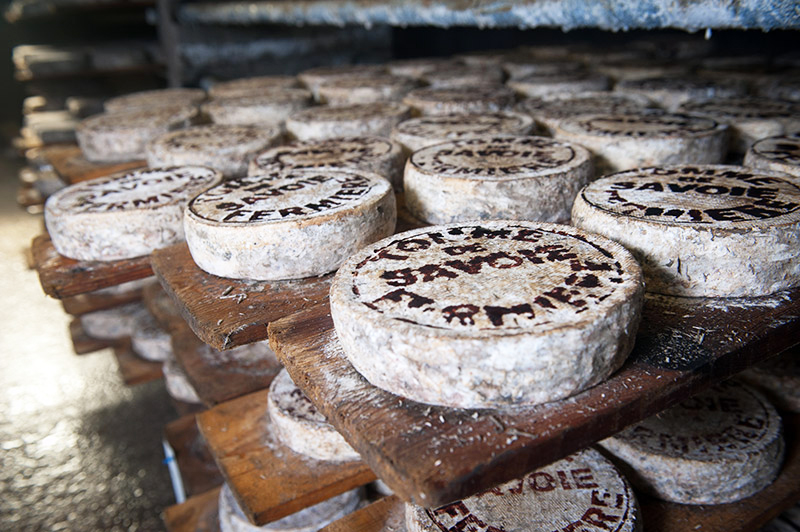
If you’re a little confused about whether dairy products should be part of a healthy diet, you’re not alone! It is because dairy happens to be one of those nutritional subjects that can become very divisive, depending on who’s talking. Mainstream dietary guidelines recommend consuming it daily for everyone, especially for children, teenagers and the elderly, claiming that it promotes strong bones and teeth, among other good things. On the opposite end of the spectrum, many holistic practitioners consider any and all dairy to be inherently inflammatory and hold that no human should consume anything besides mother’s milk!
As with many topics in nutrition, this is a complex question and the answer depends on many factors, including your individual situation.
But first let’s get clear about what we’re talking about. When we say dairy we mean all animal milks and the products that are derived from them such as butter, cream, cheese, fermented products like yogurt and kefir, etc. There’s lots to say about dairy products and it’s difficult to simply give it a yay or nay.
My short version is, if you can tolerate dairy well and take care to only consume good-quality products, then it may make a great addition to your diet.
But hang around to find out more about all the different considerations.
So what kinds of problems could dairy be causing?
First there is lactose intolerance. Lactose is the sugar in milk and is digested by the enzyme lactase. We all produce lactase as children in order to digest mother’s milk. However for a good portion of humanity (up to 75% by some accounts, depending on your ancestry), the production of this enzyme is reduced or stops altogether as they get older. So lots of people may have lactose intolerance whether or not they are aware of it. Some common symptoms may include digestive distress, such as bloating, gas, constipation or diarrhea, or even things like acne and headaches.
You can also also be allergic to the protein in milk, called casein. An allergy happens when the immune system mounts an attack against what it sees as an invader, and a food that should normally be nourishing instead provokes an inflammatory reaction. In addition to the troubles I just listed, you may be experiencing seemingly unrelated issues such as joint pain and brain fog (and intolerance to dairy is even associated with higher rates of chronic ear infections in children). Note that if you have a known allergy or sensitivity to gluten, you are also more likely to react to casein since these can cross-react in your gut.
Some of these symptoms can present shortly after you consume the dairy product and that makes it easy to make the connection. But your symptoms may also appear a few days later and may not even be obviously digestive in nature, and that makes it all that much harder to detect! A good way to find out would be to cut out all dairy products for at least 30 days and see if that makes a difference for you. (Stay tuned until the end to see all my tips on dairy consumption.)

Here’s another important point, and one that seldom gets mentioned: all dairy is not created equal and quality is of utmost importance. Full-fat organic raw or fresh milk from grass-fed Jersey cows is one thing, and the industrial dairy that most folks consume these days is a whole other thing.
Conventional dairy can be contaminated with pesticide residue, antibiotics and hormones. Remember the food chain from biology class? The higher placed you are, the more concentrated the toxins become. So it is important to buy organic when it comes to animal foods like dairy. However simply choosing organic is not enough to ensure quality either because the product could still be too processed to be nutritious.
How so, you ask?
Most store-bought milk is pasteurised, which means it was heated up to 72°C to kill any potential pathogens. The problem with pasteurisation, just like with antibacterial products, is that it not only kills pathogens but also everything else that makes milk a living food. Things like enzymes which may actually make the milk more digestible for humans are destroyed in the process, as well as other nutrients, potentially increasing the milk’s allergenic properties.
It gets worse; the industrial process of sterilization, called UHT (ultra-high temperature processing), heats the milk up even more, to more than 140°C. Those UHT bricks can stay put for months on end… because they’re not a living food anymore. In my book they are the ultimate in processed food, and it is why I don’t find them fit for human consumption!
Here’s something else to keep in mind: there are actually two types of casein depending on the breed of the dairy cow. Most industrial dairy animals (primarily Holsteins) produce milk with the A1 casein protein which is thought to be a lot more allergenic. However certain breeds like Jersey cows produce milk that has A2 casein which may be less problematic and a safer (and more delicious) choice. Here in France the organic brand Bernard Gaborit uses Jersey cows. Goat and sheep’s milk are also A2. I would recommend that you research the brands where you live and to experiment.

So if dairy is part of your life, I would recommend consuming only good-quality unprocessed or minimally-processed products — this also means you should steer clear of the low-fat stuff! Also many industrial dairy products such as small containers of yogurt or yogurt drinks marketed especially for young children are full of sugar and artificial flavors. Why not buy plain full-fat organic yogurt and add a touch of honey or some chopped fruit yourself? As always I recommend sticking to real whole foods for better health and more deliciousness for you and your family.
As you can see dairy is a tricky subject and there’s no “one size fits all” approach. There are quite a few things to consider and different members of your family may have different needs. But whatever you do, I urge you to reconsider your current dairy habit and at least incorporate better-quality products into your routine.
As always my aim is to give the information and tools you need so that you can go forth with some self-experimentation.
Bottom line – my tips on dairy consumption:
- Consider eliminating dairy for 30 days and then reintroducing one dairy product at a time for three days (butter, cheese, yogurt, kefir, cream, etc) to see how and whether you react.
- If you consume cow’s dairy, consider having only A2 milk such as from Jersey cows.
- Consider dairy from other animals like goat and sheep.
- Avoid industrial dairy products from the supermarket! Buy only the least processed products like raw or fresh milk, artisanal cheeses, or plain full-fat yogurt from a brand like Bernard Gaborit or other local brand.
- Cream, butter or ghee may be better tolerated by most people (due to lower lactose/casein content), as well as fermented dairy such as yogurt and kefir.
BOOK your free discovery call!


Thanks Aysin for demystifying this subject !
My mum always said no dairy when we were sick as kids, and it’s good to know when might be a good time to abstain and when it might actually be a bit silly.
Thanks Aysin for all this clear information ! Since the Mama Reboot I’ve stopped buying semi-skimmed UHT milk for good (yeah!) and been trying to switch to raw milk for the kids. But as they still drink a lot of milk (I know…) and raw milk is not easy to find on a daily basis, I’m buying pasteurized (but not UHT) or micro filtered full fat milk. Do you have information about micro-filtered milk : is it ok or (as I suppose) not really better than “low” temperature pasteurization for the enzymes and all the good stuff in milk ?
Is that the same as “homogenized”? If so I would not recommend it.